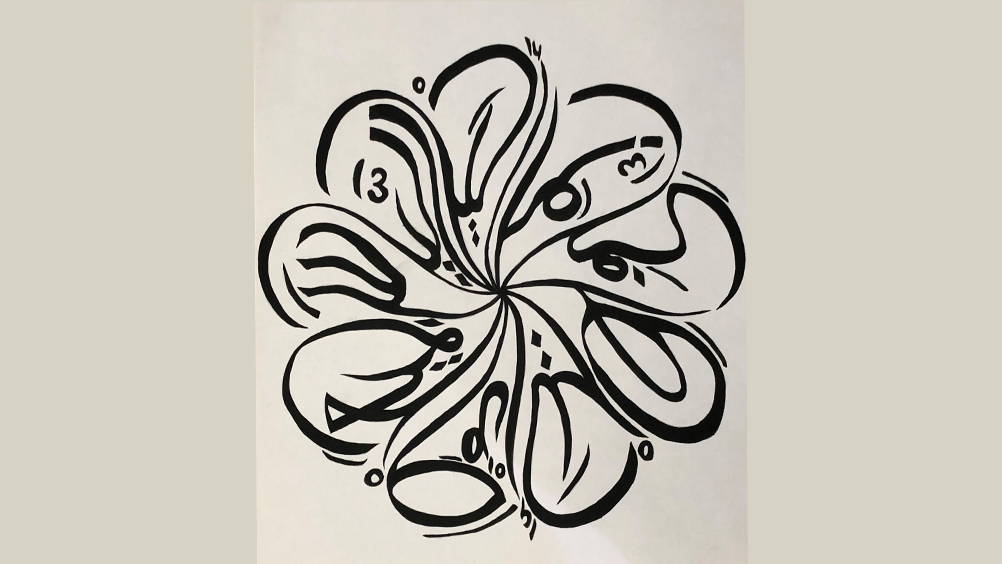First Year Arabic Student at Georgetown Wins Second Place in EC Calligraphy Contest

Mastering the art of Arabic calligraphy can be a challenge even for native speakers, who venerate the art form for its ability to convey meaning while avoiding figurative imagery. Sargis Simonyan, a non-Arabic speaker and first year student at QF partner Georgetown University in Qatar (GU-Q) took on that challenge, and won second place at the 2nd Annual Education City Arabic Calligraphy Competition.
Hosted by Student Housing and Residence Life, the QF Alumni Office, and the Minaretein Center in celebration of Qatar National Day and World Arabic Language Day, this year’s competition invited all Education City students and alumni to showcase their creative talents in Arabic calligraphy.
“It was such a surprise and honor for me to have my work appreciated that much alongside the other amazing pieces,” said Sargis, an emerging artist who has worked with a variety of mediums and artforms. But his winning entry was the first work of calligraphic art he had ever created, in any language.
The challenge was to submit an original work of calligraphy in any Arabic font displaying the Quranic verse which translates to: “And whoever saves a life, it will be as if they saved all of humanity.” Six finalists were selected from the submitted entries, who were then asked to recreate their submissions in a live-streamed event held in the Minaretein Building in Education City before the winners were announced.
Sargis was introduced to the Arabic language with his enrollment in GU-Q’s First Year Intensive Modern Standard Arabic class taught by Dr. Hana Zabarah, where students begin with learning and pronouncing the alphabet.
“A month into the semester, and we were already reading and writing in Arabic,” said Sargis. “Professor Zabarah is not only a terrific professional but she also absolutely loves teaching Arabic, which unintentionally awakens the hidden language enthusiast in each and every student she works with; and I am not an exception.”
Dr. Zabarah praised his win, saying: “Students at this stage do not usually compete in calligraphy contests, so this is a really significant achievement.” His professor also shared that Sargis showed an early aptitude for the Arabic alphabet, submitting his first assignments with calligraphic flourish.
When he learned about the competition, he was able to build on the foundation of those early efforts, turning the curved lettering he had practiced in the classroom into the beautiful symmetrical shape that defines Islamic calligraphic art. “I was happy to see that he found a creative outlet for his talent and that he continued his calligraphy elsewhere,” said his professor. His innovative and winning design combines a universal message of peace with a classic design motif from his own cultural heritage.
The first three winners were awarded a gift prize. But Sargis said the experience offered far more than that. “The calligraphy contest allowed me to unwind, innovate, and to satisfy my artistic interests after a long creative break.” It also allowed him to discover a completely new branch of visual arts. “I am definitely more ambitious about calligraphy, and looking forward to learning about it and creating more in this field.